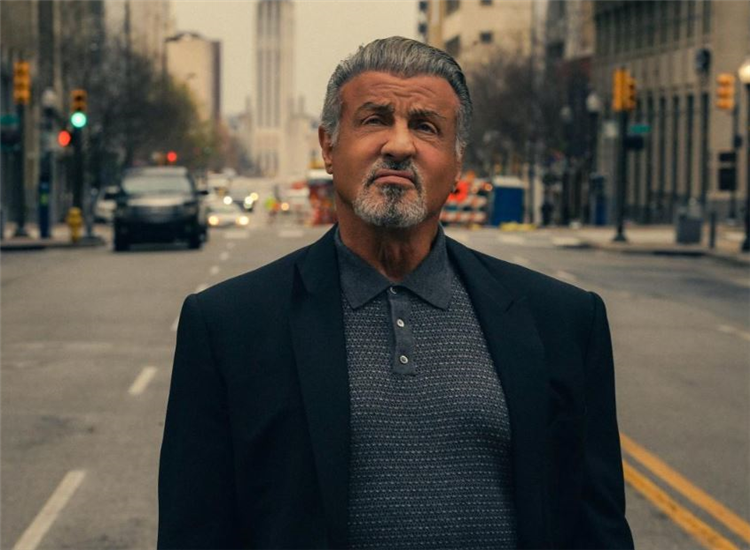Ever since his Emmy-winning stint on HBO’s “The Sopranos,” Terence Winter has had a reputation as a great writer of crime stories, whether it be as the creator of HBO’s “Boardwalk Empire,” the screenwriter of “Get Rich or Die Tryin’” and “The Wolf of Wall Street,” or head writer on his current show, the Paramount+ gangster comedy “Tulsa King.” The source of Winter’s initial interest in the subject, however, is a little surprising.
“When I was a little kid, I watched ‘Oliver,’ the musical, and I wanted to be a part of that,” Winter told IndieWire. “I wanted to be the Artful Dodger.” Winter’s preoccupation with criminal endeavors was further stoked by movies like “The Sting” and Warner Bros. gangster classics he watched on local television in New York, and as a young man, he acquired first-hand knowledge of the lifestyle growing up in Brooklyn.
“When I was a teenager, I worked for a butcher shop that was owned by Paul Castellano, who was the head of the Gambino crime family,” Winter said, adding that he later worked in an illegal casino run out of a synagogue by gangster Roy DeMeo. “So by osmosis, I understood how mobsters act and talk in real life, and I was a fan of the genre.” When the opportunity to write for “The Sopranos” came along, Winter was ready.
“It was a very natural fit. I know how those people act and talk and think, so it was fun,” Winter said. “I didn’t even have to do any research, really.” While “Tulsa King” takes full advantage of Winter’s knowledge of mob life in its story of a New York gangster (Sylvester Stallone) starting a new empire in Tulsa, Oklahoma, unlike “The Sopranos,” it did require a certain amount of research, as Winter was just as much a fish out of water in Tulsa as his protagonist.

“I had to make myself Dwight [Stallone’s character],” Winter said. “I got on a plane and went to Tulsa and just walked around. When I moved to L.A., even that felt like Mayberry to me after New York, and in Tulsa, everything was so much quieter and calmer. At the same time, you quickly realize that people are really all the same. We’re all just trying to get through the day. But I did get a feel for what it would be like if I was some New York mob boss who just got dropped into the middle of this place.”
For Winter, writing Stallone’s character comes naturally; other aspects of Tulsa living, not so much. “I grew up around pigeons and stray dogs,” he said. “Suddenly I get out there and I’m on a farm and I don’t know what I’m looking at half the time. When I write scenes involving horses, I have people who work on the show who I can ask, ‘How would I describe this?’ I don’t know how to do it myself. I’m a fan of Westerns, but I would never try to write one because I know I would screw it up. I stay in my lane.”
That said, “Tulsa King” is a kind of Western — as well as a riff on traditional procedurals and a consistently hilarious fish-out-of-water comedy. Winter says that the comedy is so baked into the premise he never has to reach for it; it just comes out organically. “First of all, he’s coming out of a time capsule,” Winter said. “He’s been in prison for 25 years. He doesn’t know what an iPhone is. He doesn’t know how to call an Uber. You don’t have to make it gratuitously funny, it’s just there. Just seeing that guy take a driving test or wait in line at Starbucks, it’s comedy born of reality, of people under pressure or people misunderstanding each other. The comedy presents itself and you don’t have to write toward it.”

It helps that in Stallone, Winter is writing for an actor with impeccable comic timing; in fact, perhaps the greatest pleasure of “Tulsa King” is seeing the actor’s comic muscles flexed fully in a way that they haven’t been since “Oscar” over 30 years ago. Winter not only writes for but with Stallone, who is intimately involved in every aspect of production and shares a writing credit with Winter and Taylor Elmore on the Season 2 premiere. “You’re not just getting an actor, you’re getting a screenwriter, a director, a producer, an editor, music guy, across the board,” Winter said. “He’s done this a million times. He’s got opinions about everything. His instincts are really spot on; he knows what he wants and what his audience wants to see.”
Winter and Stallone’s collaboration as co-writers tends to be a series of drafts going back and forth between them, as opposed to them sitting together at the keyboard. “I’ll write a version of something,” Winter said. “He’ll rewrite me and send it back. I’ll rewrite him; he’ll write something completely new on his own, send it to me. I’ll rewrite it and then we ultimately come to a place we agree on and that’s what ends up on screen. I’ve never actually sat in the same room writing with somebody the way I’ve seen it depicted on ‘The Dick Van Dyke Show’ and things like that. I have no idea how people do that without killing each other.”
Going into Season 2, Winter felt liberated since he had already “set the table” in the first season. “Now we can have a little fun with it,” he said. “You’ll still have days in the writers’ room where you feel like it’s not productive, and you’re like, ‘Oh my God, we didn’t get anything done today.’ But even when you say that, you get a lot more done than you think. Even if we spend three or four hours and don’t come up with anything, we know what’s not going to work. And then we hit on the idea that actually makes sense. But we know who the characters are and the framework of the world, and that means now we can explore things. What was Dwight’s daughter’s childhood like? What’s Tyson’s [Stallone’s driver played by Jay Will] relationship with his father like, and what do they know about each other? And that’s enormously fun.”
